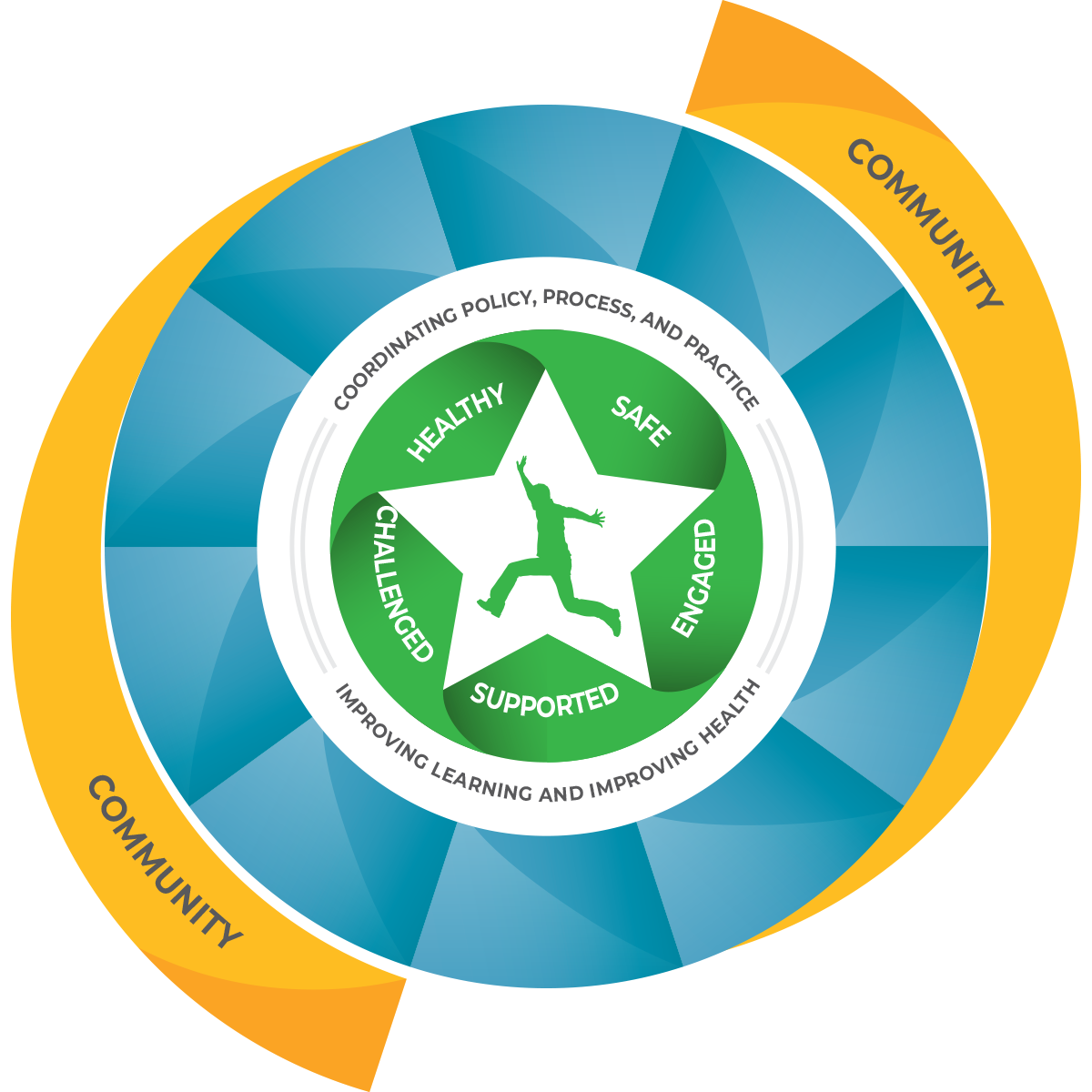The Rales Center for the Integration of Health and Education (Rales Center) is working to fundamentally reimagine school health to improve student health and wellbeing and reduce health and educational inequality.
At KIPP Baltimore, two public charter schools that serve more than 1400 students in one building, the Rales Center is testing an intuitive but rarely implemented idea—providing high-quality, accessible pediatric care, coupled with intensive family relationship-building and tailored wellness programming can engage families with systems of care in school, thus improving both student health and school engagement.
Click on the video to the right to learn more about the Rales Center’s innovative school health model.
Health Education
- Comprehensive, standards-based health education planning, implementation and advocacy
- Health education campaigns (hygiene, oral health, cold and flu prevention, nutrition)
- Supporting social media campaigns on health and wellness
Physical Education & Physical Activity
- New recess policies and procedures based on the CDC's Recess Planning in Schools guidelines, training for recess monitors
- In-class physical activity and brain breaks
Nutrition Environment & Services
- Cooking club, cooking demonstrations for students, families, and staff
- Interactive healthy eating program and farm trip for 4th grade
- School garden
Health Services
- Population-health focused school nursing services
- Comprehensive school-based health center
- Population health screenings (asthma, vision, depressive symptoms)
- Chronic condition management
- Directly observed medication therapy for chronic conditions
- Expanding school-based vision programming.
Counseling, Psychological & Social Services
- Partnership with Johns Hopkins Bayview Expanded School-Based Mental Health Program for in-school therapy and psychiatry services
- Coordinating case management for students with mental, emotional, and behavioral health needs
- School-wide multi-disciplinary team meetings
Social & Emotional Climate
- Culture and climate planning focused on social and emotional learning, trauma informed approaches, restorative practices, and principles of social justice
- Professional development and coaching in social and emotional learning, trauma, and restorative practices
Physical Environment
- Investigating the role of factors like extreme building temperature on student health and healthcare utilization
- Professional development and individual guidance on limiting asthma triggers in the classroom environment
- Guidance about building ventilation for infection control
- Creating a school garden
Employee Wellness
- KIPP Well staff health and wellness program
- Healthy eating activities and cooking demonstrations for staff
- Conducting Mindfulness Based Stress Reduction for staff
- Review of yearly staff wellness survey to assess state of staff mental and physical health
Family Engagement
- Parent Advisory Board, Youth Advisory Council
- Parent advocacy training program
- Activities for families including 5k/1k Fun Run and healthy cooking demonstrations
Community Engagement
- Partnerships with local municipal parks, community organizations, local businesses, local health systems, community vision providers, and local elected officials
- Engagement of community and university volunteers in program delivery and participation
- Community needs assessment
The Rales Center’s approach to school health is informed by the CDC’s Whole School, Whole Community, Whole Child Model (WSCC). The Rales Model provides comprehensive, preventive and acute care, proactive screening and population health programs, chronic disease management, and family advocacy alongside student and teacher wellness programming, socio-emotional skills development, and linkages to mental health care. The Rales team aims to provide a safe, affirming, and supportive environment that can serve as a pathway to engagement with needed resources for many families.
Click on a blue WSCC Model component to the left for detailed information.
